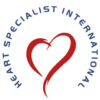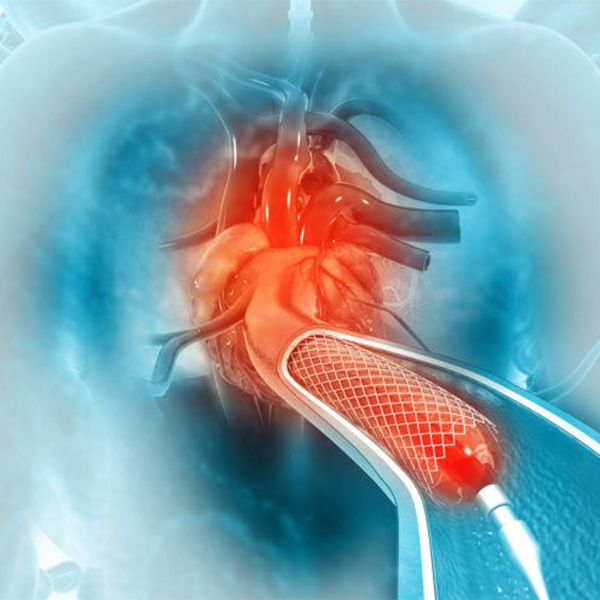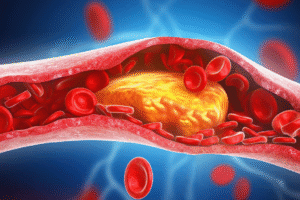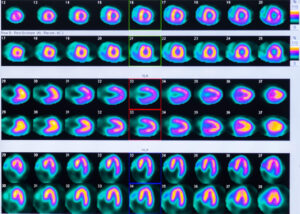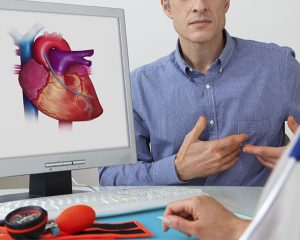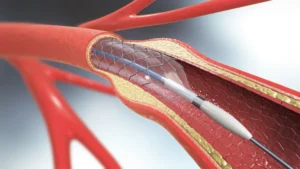When people think of a heart attack, they often picture a man clutching his chest in sudden pain. While this can happen, heart attack symptoms in women can be much less obvious. Because of this, heart attacks in women are sometimes missed or mistaken for other conditions, leading to delays in treatment. While heart attack is less common in women, it is still one of the leading causes of death in the female gender.
One of the most effective emergency treatments for a heart attack is primary angioplasty, a procedure that helps restore blood flow quickly and reduce heart damage. Understanding the signs of a heart attack in women and why angioplasty is so important can help save lives.
Heart Attack Symptoms in Women Are Not Always What You Expect
Men and women can experience different heart attack symptoms. While men often report the classic crushing chest pain, women’s symptoms can be more subtle, leading to delays in seeking medical help.
Common heart attack symptoms in women include:
Unusual fatigue – Feeling overwhelmingly tired, even after rest.
Shortness of breath – Difficulty breathing, sometimes without chest pain.
Pain in the neck, jaw, back, or stomach – Discomfort that isn’t always in the chest.
Nausea or dizziness – Feeling lightheaded or like you might faint.
Chest discomfort – A pressure, squeezing, or aching feeling rather than sharp pain.
These symptoms can be mistaken for stress, indigestion, or even the flu, leading many women to delay going to the hospital. This delay can be dangerous because heart attacks require immediate treatment.
What Is Primary Angioplasty and Why Is It So Important?
Primary angioplasty (also called primary percutaneous coronary intervention, or PPCI) is an emergency procedure used to treat heart attacks caused by blocked arteries.
How Does It Work?
- A thin tube (catheter) is inserted into an artery, usually in the wrist
- A small balloon is inflated to open up the blocked artery.
- A stent (a tiny mesh tube) is placed to keep the artery open.
- Blood flow is restored, reducing heart damage.
The quicker this procedure is done, the less damage the heart suffers. This is why getting to a hospital as soon as symptoms appear is crucial.
Why Timely Angioplasty Saves Lives
Time is critical during a heart attack. The longer the heart is starved of oxygen-rich blood, the more damage occurs. Primary angioplasty has been shown to:
Reduce the risk of death – Restoring blood flow quickly improves survival rates.
Lower the chances of heart failure – Less heart muscle damage means the heart can function more effectively. Remember time is muscle!
Help prevent future heart attacks – Keeping the artery open reduces the risk of another blockage.
Women often arrive at the hospital later than men after experiencing symptoms. This delay can limit treatment options and increase complications. Recognising symptoms early and seeking immediate medical help can make a huge difference.
What Can Women Do to Reduce Their Risk?
While heart attacks can happen unexpectedly, there are ways to lower the risk:
Know the symptoms – Awareness of how heart attacks present in women can lead to faster action.
Manage blood pressure and cholesterol – High levels increase the risk of artery blockages.
Maintain a heart-healthy lifestyle – A balanced diet, regular exercise, and stress management all help protect heart health.
Get regular check-ups – If you have a family history of heart disease or risk factors like diabetes, regular screening is important.
Take Action for Your Heart Health
If you have concerns about your heart or risk factors for heart disease, it’s important to take them seriously.
At The Heart Specialist International, Dr Paul Ong provides individualised care to assess your risk, discuss preventive steps, and guide you through any necessary treatments. If you or someone you know experiences possible heart attack symptoms, seek medical help immediately, timing could be life saving.
Book an appointment with Dr Paul Ong at The Heart Specialist International today to take charge of your heart health.
